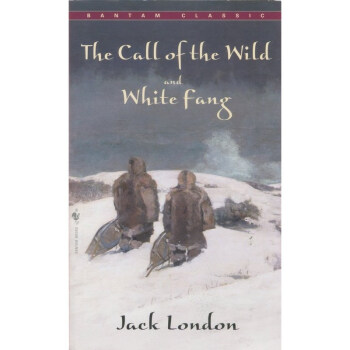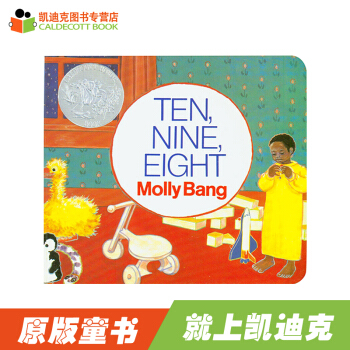![The Age of Innocence[纯真年代] [平装]](https://pic.windowsfront.com/19043410/rBEQYFGUU1IIAAAAAACmrGb-GsAAABR0gJ7a0EAAKbE305.jpg)

具体描述
编辑推荐
The winner of the 1921 Pulitzer Prize, Wharton's acclaimed novel is the story of a passion threatened by convention and played out against a backdrop or New York City's upper class, unimaginable wealth, and unavoidable tragedy. Revised reissue.《纯真时代》是伊迪丝·华顿的杰出代表作品。华顿把爱伦--全书的灵魂人物的性格的各个侧面都描写的栩栩如生。她的温柔、善良、勇敢、真实,尤其是她展现出来的牺牲精神更是伴随着故事的发展而升华。
内容简介
The 1920s novel of a passion threatened by convention and played outagainst a backdrop of New York City-s upper class, unimaginable wealth,and unavoidable tragedy.《纯真年代》讲述透过老纽约社会培养出的最优秀的青年———纽兰,通过他保守的思想和双眼,奥兰斯卡伯爵夫人的形象就是一个极为风情、大胆的女子,有些轻浮、有些散漫,看起来和老纽约社会上的
贵族是那样的不同,在他看来这样的女人也不可能具有什么高贵的品质。但是随着故事的展开,奥兰斯卡伯爵夫人的许多优秀的品质被显现出来,尤其是她的人道主义的牺牲精神展现得尤为突出。
作者简介
Edith Wharton:One of America's most important novelists, Edith Wharton was a refined, relentless chronicler of the Gilded Age and its social mores. Along with close friend Henry James, she helped define literature at the turn of the 20th century, even as she wrote classic nonfiction on travel, decorating and her own life.伊迪丝·华顿(Edith Wharton, 1862年1月24日-1937年8月11日),是19 世纪末女性现实主义作家的代表,她的一生推出了近十余部作品,包括中、长篇小说、诗歌、传记和文学批评等不同体裁。由于她生活的局限性,她的小说一般都是以一种极其细腻的手法描写着贵族生活,所以也被人称为温和现实主义作家。美国女作家,作品有《高尚的嗜好》、《纯真年代》、《四月里的阵雨》、《马恩河》、《战地英雄》等书。
精彩书评
"One of the best novels of the 20th century."
--NY Times Book Review
"The winner of the 1921 Pulitzer Prize, Wharton's acclaimed novel is the story of a passion threatened by convention and played out against a backdrop or New York City's upper class, unimaginable wealth, and unavoidable tragedy."
-- Revised reissue.
--NY Times Book Review
精彩书摘
ON A January evening of the early seventies, Christine Nilsson was singing in "Faust" at the Academy of Music in New York.
Though there was already talk of the erection, in remote metropolitan distances "above the Forties," of a new Opera House which should compete in costliness and splendour with those of the great European capitals, the world of fashion was still content to reassemble every winter in the shabby red and gold boxes of the sociable old Academy. Conservatives cherished it for being small and inconvenient, and thus keeping out the "new people" whom New York was beginning to dread and yet be drawn to; and the sentimental clung to it for its historic associations, and the musical for its excellent acoustics, always so problematic a quality in halls built for the hearing of music.
It was Madame Nilsson's first appearance that winter, and what the daily press had already learned to describe as "an exceptionally brilliant audience" had gathered to hear her, transported through the slippery, snowy streets in private broughams, in the spacious family landau, or in the humbler but more convenient "Brown coupé." To come to the Opera in a Brown coupe was almost as honourable a way of arriving as in one's own carriage; and departure by the same means had the immense advantage of enabling one (with a playful allusion to democratic principles) to scramble into the first Brown conveyance in the line, instead of waiting till the cold-and-gin congested nose of one's own coachman gleamed under the portico of the Academy. It was one of the great livery-stableman's most masterly intuitions to have discovered that Americans want to get away from amusement even more quickly than they want to get to it.
When Newland Archer opened the door at the back of the club box the curtain had just gone up on the garden scene. There was no reason why the young man should not have come earlier, for he had dined at seven, alone with his mother and sister, and had lingered afterward over a cigar in the Gothic library with glazed black-walnut bookcases and finial-topped chairs which was the only room in the house where Mrs. Archer allowed smoking. But, in the first place, New York was a metropolis, and perfectly aware that in metropolises it was "not the thing" to arrive early at the opera; and what was or was not "the thing" played a part as important in Newland Archer's New York as the inscrutable totem terrors that had ruled the destinies of his forefathers thousands of years ago.
The second reason for his delay was a personal one. He had dawdled over his cigar because he was at heart a dilettante, and thinking over a pleasure to come often gave him a subtler satisfaction than its realisation. This was especially the case when the pleasure was a delicate one, as his pleasures mostly were; and on this occasion the moment he looked forward to was so rare and exquisite in quality that—well, if he had timed his arrival in accord with the prima donna's stage-manager he could not have entered the Academy at a more significant moment than just as she was singing: "He loves me—he loves me not—he loves me!—" and sprinkling the falling daisy petals with notes as clear as dew.
She sang, of course, "M'ama!" and not "he loves me," since an unalterable and unquestioned law of the musical world required that the German text of French operas sung by Swedish artists should be translated into Italian for the clearer understanding of English-speaking audiences. This seemed as natural to Newland Archer as all the other conventions on which his life was moulded: such as the duty of using two silver-backed brushes with his monogram in blue enamel to part his hair, and of never appearing in society without a flower (preferably a gardenia) in his buttonhole.
"M'ama . . . non m'ama . . ." the prima donna sang, and "M'ama!" with a final burst of love triumphant, as she pressed the dishevelled daisy to her lips and lifted her large eyes to the sophisticated countenance of the little brown Faust-Capoul, who was vainly trying, in a tight purple velvet doublet and plumed cap, to look as pure and true as his artless victim.
Newland Archer, leaning against the wall at the back of the club box, turned his eyes from the stage and scanned the opposite side of the house. Directly facing him was the box of old Mrs. Manson Mingott, whose monstrous obesity had long since made it impossible for her to attend the Opera, but who was always represented on fashionable nights by some of the younger members of the family. On this occasion, the front of the box was filled by her daughter-in-law, Mrs. Lovell Mingott, and her daughter, Mrs. Welland; and slightly withdrawn behind these brocaded matrons sat a young girl in white with eyes ecstatically fixed on the stage lovers. As Madame Nilsson's "M'ama!" thrilled out above the silent house (the boxes always stopped talking during the Daisy Song) a warm pink mounted to the girl's cheek, mantled her brow to the roots of her fair braids, and suffused the young slope of her breast to the line where it met a modest tulle tucker fastened with a single gardenia. She dropped her eyes to the immense bouquet of lilies-of-the-valley on her knee, and Newland Archer saw her white-gloved finger-tips touch the flowers softly. He drew a breath of satisfied vanity and his eyes returned to the stage.
No expense had been spared on the setting, which was acknowledged to be very beautiful even by people who shared his acquaintance with the Opera Houses of Paris and Vienna. The foreground, to the footlights, was covered with emerald green cloth. In the middle distance symmetrical mounds of woolly green moss bounded by croquet hoops formed the base of shrubs shaped like orange-trees but studded with large pink and red roses. Gigantic pansies, considerably larger than the roses, and closely resembling the floral pen-wipers made by female parishioners for fashionable clergymen, sprang from the moss beneath the rose-trees; and here and there a daisy grafted on a rose-branch flowered with a luxuriance prophetic of Mr. Luther Burbank's far-off prodigies.
In the centre of this enchanted garden Madame Nilsson, in white cashmere slashed with pale blue satin, a reticule dangling from a blue girdle, and large yellow braids carefully disposed on each side of her muslin chemisette, listened with downcast eyes to M. Capoul's impassioned wooing, and affected a guileless incomprehension of his designs whenever, by word or glance, he persuasively indicated the ground floor window of the neat brick villa projecting obliquely from the right wing.
"The darling!" thought Newland Archer, his glance flitting back to the young girl with the lilies-of-the-valley. "She doesn't even guess what it's all about." And he contemplated her absorbed young face with a thrill of possessorship in which pride in his own masculine initiation was mingled with a tender reverence for her abysmal purity. "We'll read Faust together . . . by the Italian lakes . . ." he thought, somewhat hazily confusing the scene of his projected honeymoon with the masterpieces of literature which it would be his manly privilege to reveal to his bride. It was only that afternoon that May Welland had let him guess that she "cared" (New York's consecrated phrase of maiden avowal), and already his imagination, leaping ahead of the engagement ring, the betrothal kiss and the march from "Lohengrin," pictured her at his side in some scene of old European witchery.
...
前言/序言
用户评价
这本书的名字,‘纯真年代’,就如同一幅淡淡的水墨画,勾勒出我脑海中对过往岁月的美好想象。在如今这个充斥着喧嚣与浮躁的时代,‘纯真’二字仿佛成了一种奢侈品。我购买它的动机,正是被这种对纯粹与美好的向往所驱使,渴望借由阅读,重温那段可能从未真正经历,却充满向往的时光。 平装本的设计,对我来说是一种恰到好处的亲切感。它不像精装本那样显得高冷,却也比那些过于简单的版本更具品质感。纸张的触感温润,翻阅起来也十分顺手,没有那种刮擦感,让我在沉浸故事情节的同时,也能享受到阅读本身的愉悦。这种朴素而扎实的质感,与‘纯真年代’的主题倒也有几分契合。 我一直对那个时代的人际交往模式和情感表达方式充满了好奇。在那个没有被科技过度浸染的年代,人与人之间的沟通似乎更加依赖于真挚的眼神交流,依赖于细腻的文字表达,依赖于一种含蓄而深刻的情感连接。这本书,恰好提供了一个窗口,让我得以窥探那个时代的真实面貌。 我非常期待能在这本书中,感受到那个时代独特的社会风貌和生活气息。那些被时代背景所塑造的人物,他们在面对情感、道德与社会规范时的种种纠结与选择,都将是吸引我的重要因素。我希望通过作者的细腻笔触,能够深入理解那个时代人们的内心世界,并从中获得一些对当下生活的启示。 总而言之,这本书的标题本身就带着一种引人入胜的魔力,它承诺了一段值得细细品味的阅读旅程。我把它视为一次对美好过往的致敬,一次对纯粹情感的追寻,一次对人生意义的深刻探寻。
评分这本书的封面设计非常吸引人,淡雅的色彩搭配简洁的字体,让人一眼就能感受到一种复古而宁静的氛围。我之所以会选择它,很大程度上是被这个“纯真年代”的字样所打动。在如今这个信息爆炸、节奏飞快的时代,能够有机会逃离现实,走进一个相对纯粹、缓慢的世界,对我来说是一种莫大的慰藉。 我一直对那个特定历史时期的社会风貌和人们的生活方式充满好奇。想象一下,在那个没有智能手机、没有网络的世界里,人们是如何交流、如何表达情感、如何维系社交关系的?那种慢节奏的生活,是否真的如想象中那样充满了细致的观察和深刻的体察?我期待这本书能够带我走进那个时代,让我透过作者的笔触,去感受当时社会阶层之间的微妙互动,去理解那些隐藏在得体礼仪下的真实情感。 装帧方面,平装本的设计也显得颇为用心。纸张的触感舒适,翻阅时有一种柔和的阻力,不像硬壳装那样显得过于正式,也不像廉价平装那样容易损坏。这种介于两者之间的质感,恰恰符合了我对“纯真年代”的理解——既有时代的底蕴,又不失生活的温度。我常常会在一个安静的午后,泡上一杯热茶,捧着这样一本书,沉浸在属于自己的阅读时光里。 我相信,这本书不仅仅是关于一段历史或者一个故事,更可能是一种生活态度和价值观念的展现。在那个时代,人们似乎更注重内心的修养和人际关系的维系,而不是外在的物质追求。我希望通过阅读这本书,能够从中汲取一些关于生活智慧的养分,重新审视当下生活中那些被忽略的美好,并从中获得一些启发。 购买这本书,也是一次对经典文学的致敬。在文学的长河中,总有一些作品能够穿越时空的阻隔,触动一代又一代读者的心灵。我相信《纯真年代》拥有这样的力量。它的名字本身就带着一种美好的期许,仿佛在承诺一段值得回味的阅读旅程。我迫不及待地想要翻开它,去探索那些未知的精彩。
评分这本《纯真年代》,单是书名就自带一种醇厚的复古气息,仿佛穿越了时空,将我拉进了一个我从未真正经历,却又心向往之的时代。我喜欢那些名字中带着美好寓意的书,它们往往蕴含着作者对生活、对情感的深刻洞察。‘纯真’二字,勾勒出的不仅是一个时代,更是一种难得的心境。 装帧上,我偏爱这种平装本。它没有硬壳的束缚,更加自在轻巧,仿佛一本可以随意放在背包里,在任何碎片化的时间里都能拿出来翻阅的书籍。书页的触感也显得很实在,没有那种廉价纸张的粗糙感,翻阅时发出的沙沙声,也为阅读增添了几分仪式感。这是一种朴素而又充满质感的美。 我一直对那个时代人们的生活方式和情感表达方式感到好奇。在那个没有社交媒体,信息传递相对缓慢的年代,人与人之间的关系似乎更加真实和纯粹。我想象着,在那个时代,人们是如何通过细致入微的观察,通过每一次真诚的交流,去维系彼此的情感,去构建属于他们的‘纯真年代’。 这本书,对我而言,不仅仅是一次阅读的体验,更是一次对过往时代的探索。我期待能透过作者的笔触,去感受那个时代独特的社会氛围,去理解那些在当时被视为理所当然的规则和习俗,去体会那个时代人们在情感和道德上的抉择。我希望从中能获得一些关于生活、关于人性的感悟。 这本书的书名,就像一个温柔的邀请,邀请我去探索一个失落的美好年代。我购买它的初衷,就是希望能够获得一种宁静的阅读体验,一种能够触及心灵深处的共鸣。我把它看作是一次与经典的对话,一次对美好记忆的追溯,一次对现代社会的反思。
评分这本书的书名,仿佛一股清流,瞬间洗涤了我被现代社会洪流冲刷得有些疲惫的心灵。‘纯真年代’,这几个字在我脑海中勾勒出的是一片宁静祥和的画面,是那种不需要用过度包装和喧嚣来证明自身价值的时代。我购买它的原因,很大程度上是源于对这份‘纯真’的向往,渴望借由文字,暂时逃离现实的纷扰。 平装本的设计,让我觉得它更加亲民,更加适合日常的阅读。不像硬壳装那样显得高高在上,它就像一个老朋友,可以随时随地陪伴在我身边。当我想要放松身心,沉浸在故事中的时候,它不会显得突兀,反而会自然而然地融入我的生活。纸张的触感也很舒服,翻页的时候有一种恰到好处的阻力,让我能够更专注地投入阅读。 我对那个特定历史时期的社会文化和人情世故一直保持着浓厚的兴趣。在那个没有便捷通讯设备的年代,人与人之间的交流似乎更加依赖于真诚的沟通和细致的观察。我想知道,在那样一种更加注重内在修养和社交礼仪的社会环境下,人们的情感是如何流淌,又是如何被表达的。这本书,正是我寻找答案的钥匙。 我更期待的是,通过阅读这本书,能够深入了解那个时代的社会结构和人们的生活方式。那些隐藏在华丽外表下的真实情感,那些在特定历史背景下人们所做出的选择,以及那些在看似平静的生活中暗流涌动的复杂人性,都令我充满好奇。我希望这本书能够带给我更深层次的思考,让我对人性和社会有更独到的理解。 这本书,对我来说,不只是一个故事,更像是一次跨越时空的对话。它让我有机会去审视当下,去回味那些可能被我们忽略的‘纯真’时刻,并从中获得一些关于生活智慧的启示。我把它当作一次心灵的洗礼,一次与经典的亲密接触,一次对美好年代的浪漫想象。
评分这款书名,直接点燃了我内心深处的那一丝怀旧情结。你能想象吗?“纯真年代”,光是这四个字,就足以让我联想到那些在老电影里看到过的精致场景,比如 ladies 们穿着长裙,在花园里低语,gentlemen 们则戴着高顶礼帽,在舞会上翩翩起舞。这本书的标题,仿佛是一扇门,直接把我引向那个我既熟悉又陌生的年代。 我一直对那个时代的人际交往方式感到着迷。在没有即时通讯的时代,一个眼神,一个微笑,甚至是一封信,都承载着比现在更丰富的情感信息。人们是如何在这种含蓄而微妙的互动中,建立深厚的情感联结?又是如何在这种森严的社会规范下,寻找属于自己的真情实感?这本书,正是我探索这些问题的绝佳载体。 这本平装书拿在手里的感觉也恰到好处。它不像精装本那样显得过于隆重,又比那些轻飘飘的盗版书更有质感。那种恰到好处的重量和纸张的触感,都让我觉得,这是一本值得细细品读的书。我喜欢那种慢慢翻阅,感受纸张摩擦的声音,以及每一页都带着淡淡油墨香的感觉,这本身就是一种享受。 我期待这本书能够带我看到那个时代的生活细节,比如当时的服饰、饮食、社交礼仪,以及那些隐藏在表象之下的社会规则。我更希望通过作者的描绘,能够感受到那个时代的人们,在面对情感、责任和自我选择时的复杂心境。我很好奇,在那个看似“纯真”的年代,是否也隐藏着不为人知的挣扎和选择。 总而言之,这本书的名称和它传递出的信息,都深深地吸引了我。它不仅仅是一本书,更像是一个通往过去世界的窗口,让我有机会去感受一个与我们截然不同的时代。我把它当作一次心灵的旅行,一次与历史的对话,一次对人性深层探索的邀请。
评分其实一开始的时候,还真给这本书制定了一个满月计划。因为瞅着这样类型的题材,总觉得虽是一本有价值的书,但未必就好读,所以用上整整一个月去啃读基本是必须的了。但后来经过实践才发现,这么一本不算太薄的书,竟然只用了三天不到就攻下来了!不得不承认,其中的精彩程度远远大于之前的预估,基本上每看上几页,就能遇上一个爽点,让你继续下去,并且保持这样的亢奋情绪直到最后。绝对五星,没说的!
评分英文书,老外出版的。书很小,纸一般。
评分龙妈这个土豪!!!自从用非公平手段获得八千无垢者之后,在奴隶湾真是飞扬跋扈。她男人虽然也不是善主,但是也就抢枪东西而已,总不会颠覆别人的王国,悍然挑战一种制度。而丹妮莉斯却是典型的暴发户,举着一面解放奴隶的大旗,公然与奴隶湾为敌,自我感觉过于良好!尽管目的伟光正,但是从此也陷入了无休止地消耗战中。
评分感觉书的质量想路边五块钱买的那种,质量太次了。
评分当我开始寻找,现今的大师们就陆陆续续向我走来。像个完美的链圈般,发现一位导师之后,就会接连到下一位。若我偏离了路径,就会有其他事物吸引我的注意,也借由这样的转移,再下一位导师又会出现。在网络上找数据时,如果不经意地点到某个错误的链接,也会把我带到极重要的关键信息上。短短几个星期内,我回溯数个世纪的史料追踪这个秘密,并发现了这秘密的当代实践者。所有的文字与照片,始终都温柔笃定,一似在作者写作的那一刻,时光停止,倨傲的神灵隐灭无踪。我由衷地相信,在思考与写作的同时,他重新回到了他足迹曾到过的每一个地方,慢慢地重现,静静地回味。内省着,幸福着,明确着。只有尝过苦,才会有行的欢愉。在看到那梦想的场景之时,你会明白,这不是信手掂来。你是一步步走来的,为了迎接它,为了拥抱它。
评分买的10本书没一本有塑封的!都挺旧的!
评分梅是属于白天的女人,她高贵、美丽,是理想的妻子,纯洁得像一朵带露的百合花。他们的结合是两个最大家族的联姻。
评分刚拿到手,迫不及待翻看了几下。这期还是保持了[]给我的印象图片多,文字客观平和。目测看完这一本,不能说就知道了[],但最起码比我现在知道的要多,它只是一本[],能带给我们知识(客观的,求是的),就已经够可以感恩了。豆瓣上有个评论说得甚合我心,都是值得尊敬的。所以,那些说什么排版不好看啦,信息量少拉,内容陈旧拼凑连百度都可以搜到拉,之类的人,请首先持珍惜的态度。在国内看多了偏激的,愤怒的,莫名其妙的有关[]的评论,这么一本至少可以好好说话的书籍,反正我是真的觉得非常难得并且眼前一亮的。更何况,个人非常喜欢这种饱满的排版(个人喜好),内容的信息量对我来说也算有营养了(难道是我太没文化?),自认为没本事在百度搜到这么多图片(你们说的是真的吗,百度地图连国外的地方都显示不了)。从另一方面来讲,编辑也要珍惜慢慢积累起来的粉丝群,不要随大流,坚持自己的特色,更不要忘了杂志的初衷。这本书不仅能让你看到奋斗,也能让你懂得青春。
评分好好好好好好好好好好好好好好
相关图书
本站所有内容均为互联网搜索引擎提供的公开搜索信息,本站不存储任何数据与内容,任何内容与数据均与本站无关,如有需要请联系相关搜索引擎包括但不限于百度,google,bing,sogou 等,本站所有链接都为正版商品购买链接。
© 2026 windowsfront.com All Rights Reserved. 静流书站 版权所有

![Clouds (Let's-Read-and-Find-Out Science 1)[云] [平装] [4岁及以上] pdf epub mobi 电子书 下载](https://pic.windowsfront.com/19095678/802c2b53-0f0d-4c48-8c58-a4051c06d43b.jpg)
![Pinkalicious: The Princess of Pink Slumber Party (I Can Read, Level 1) [平装] pdf epub mobi 电子书 下载](https://pic.windowsfront.com/19282543/550bf09bNa946668f.jpg)
![Roly Poly Pop-up: Ocean 英文原版 [平装] [3-8岁] [魔术方块立体游戏书:海洋] pdf epub mobi 电子书 下载](https://pic.windowsfront.com/19456112/rBEhWlL4PWsIAAAAAAwOsYosyjsAAIV3wAMm2oADA7J298.jpg)
![National Geographic Readers: Alexander Graham Bell 英文原版 [平装] [5-8 岁] pdf epub mobi 电子书 下载](https://pic.windowsfront.com/19531954/54dbfe3fNbd8b5b67.jpg)
![Who Was Charles Dickens? [平装] [8-12岁] pdf epub mobi 电子书 下载](https://pic.windowsfront.com/19539153/552496d1Ne6881d11.jpg)









![Curious George Takes a Train 好奇猴乔治坐火车 [平装] [5岁及以上] pdf epub mobi 电子书 下载](https://pic.windowsfront.com/19000097/571fa7d1-086b-478f-b9de-775f7a0c5cbc.jpg)
![White on Black黑底白字(纸板书) 英文原版 [平装] pdf epub mobi 电子书 下载](https://pic.windowsfront.com/19009028/550be682N26fdb706.jpg)
![Henry Huggins亨利·哈金斯 英文原版 [平装] [8-12岁] pdf epub mobi 电子书 下载](https://pic.windowsfront.com/19009178/558b9531N6d198bb1.jpg)
![Mummy Laid an Egg! 英文原版 [平装] pdf epub mobi 电子书 下载](https://pic.windowsfront.com/19014761/ff904848-2463-4915-8fdc-3a162eba060c.jpg)
![The Little Christmas Elf圣诞小精灵(金色童书) 英文原版 [精装] [3岁及以上] pdf epub mobi 电子书 下载](https://pic.windowsfront.com/19033545/d5baec0b-eb3c-43e4-8086-b4814d7713f4.jpg)
![Alex Rider : Point Blank Alex Rider Series : Book 2 [平装] pdf epub mobi 电子书 下载](https://pic.windowsfront.com/19141544/57b55da7Neefbb701.jpg)